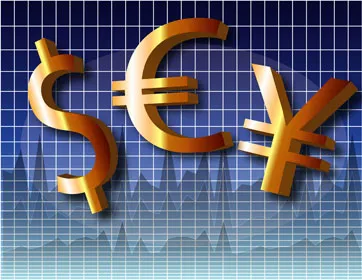
Before you start a career in Forex trading, it is essential that you familiarize yourself with the factors that cause the exchange rates to fluctuate. It is important to note that the majority of these factors tend to be intangible and/or psychological in nature. Therefore, it may be difficult to characterize them. Nonetheless, some of the factors that are commonly regarded as fundamental determinants are discussed below.
Inflation - Generally, if a country has a high level of inflation, then it exhibits a depreciating currency value. On the other hand, a country with low inflation will have an appreciating currency in relation to the currencies of other countries. If the law of purchasing parity holds, then a country with a high inflation has a decreasing purchasing power relative to other currencies of other countries.
Interest rates - If a country has higher interest rates, then it implies that lenders will benefit from a higher return as compared with other countries with lower interest rates. As such, a higher interest rate lures foreigners to carry out investment activities in the country, and this would cause the exchange rate to increase. On the other hand, if interest rates decrease, investors may move from that currency to another as they seek a higher yield for their investment.
Trade balance - A country's trade balance refers to the balance of its exports and imports. If there is a surplus, then it implies that the country has a favorable balance of trade, and therefore a strong currency. On the other hand, if there is a deficit in the balance of trade, then it implies that the country is borrowing capital from foreign sources to make up the deficit, and this translates to a weaker currency value.
Public debt - In general, a country may take part in deficit financing activities to meet the costs of its public sector projects and government spending. Whereas such efforts are intended to revive the domestic economy, if a country has a large public deficits and debts, this would eventually eat into the value of its currency.
Political and economic factors - It is a common practice in the world of investment to avoid channeling money in places of high levels of risk. As such, investors tend to avoid countries with unstable regimes and political woes. A country with a stable administration will boost the confidence of investors to invest their capital. Consequently, such positive attributes will be seen in the appreciation of its currency.
